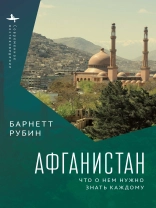Barnett R. Rubin, one of the world’s leading scholars of contemporary conflict and politics in Afghanistan, offers unique insights into the country’s turbulent history, gleaned from four decades of work as a scholar and practitioner for both the United Nations and the United States. After situating the formation of modern Afghanistan in its long-term historical context, Rubin focuses on the period of armed conflict that began in 1978. The book analyzes the local, national, regional, and global shifts on social structure and the economy that perpetuated violent conflict while transforming its structure. Rubin’s own analysis is complemented by guest chapters by world experts on Afghanistan’s aid economy, drug industry, and the Taliban.
Giới thiệu về tác giả
Barnett R. Rubin is a distinguished fellow in the China Program of the Stimson Center. He is a non-resident senior fellow of the Quincy Institute for Responsible Statecraft and New York University’s Center on International Cooperation, where he was senior fellow and director of the Afghanistan Regional Program from 2000 to 2020. From April 2009 until October 2013, Rubin was senior adviser to the U.S. Special Representative for Afghanistan and Pakistan. In 2001 he served as senior advisor to the UN Special Representative of the Secretary General for Afghanistan. He advised the United Nations on the Afghan constitution, the Afghanistan Compact and the Afghanistan National Development Strategy. From 1994 to 2000, Rubin was director of the Center for Preventive Action at the Council on Foreign Relations in New York. He has taught at Columbia and Yale Universities. Rubin is the author of Afghanistan from the Cold War through the War on Terror (2013), The Fragmentation of Afghanistan (1995, 2 nd ed. 2002), and other books. His articles have appeared in Foreign Affairs, Foreign Policy, The New Yorker, Survival, The New York Times, The Washington Post and The New York Review of Books.












